Recent Blog Posts
Top Qualifications for Bankruptcy in Texas
 Financial distress is overwhelming, but bankruptcy provides options to people suffering from a burden of debt which they feel they may never get out from under. Understanding the qualifications for bankruptcy in Texas can help you make informed decisions about your financial future. A Texas lawyer will walk you through the factors determining bankruptcy eligibility. With legal guidance, you can move forward with the most strategic option for your situation.
Financial distress is overwhelming, but bankruptcy provides options to people suffering from a burden of debt which they feel they may never get out from under. Understanding the qualifications for bankruptcy in Texas can help you make informed decisions about your financial future. A Texas lawyer will walk you through the factors determining bankruptcy eligibility. With legal guidance, you can move forward with the most strategic option for your situation.
Make Sure You Understand the Bankruptcy Types in Texas
Before discussing qualifications, you should understand the two primary types of personal bankruptcy available in Texas:
-
Chapter 7 bankruptcy: Individuals can wipe out the majority of their unsecured debts through Chapter 7 bankruptcy, commonly known as "liquidation bankruptcy.
-
Chapter 13 bankruptcy: Reorganization bankruptcy, also known as Chapter 13 bankruptcy, allows individuals to develop a three- to five-year repayment plan for their debts.
Who is Chapter 13 Bankruptcy Ideal For?
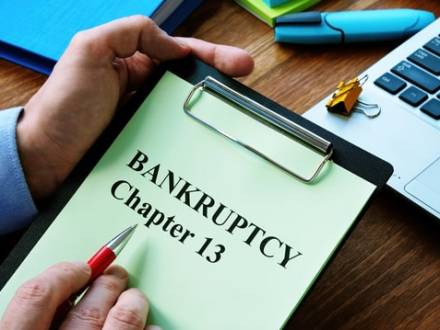 Chapter 13 bankruptcy serves as a lifeline for many individuals seeking to regain control of their finances. This form of bankruptcy, often called a "wage earner’s plan," offers a structured approach to debt repayment. But who exactly stands to benefit most from this option? A Texas lawyer can help you understand the ideal candidates for Chapter 13 bankruptcy and how it can provide a path to financial recovery.
Chapter 13 bankruptcy serves as a lifeline for many individuals seeking to regain control of their finances. This form of bankruptcy, often called a "wage earner’s plan," offers a structured approach to debt repayment. But who exactly stands to benefit most from this option? A Texas lawyer can help you understand the ideal candidates for Chapter 13 bankruptcy and how it can provide a path to financial recovery.
Potential Candidates for Chapter 13 Bankruptcy
Chapter 13 bankruptcy suits those with a steady, reliable income. This could include salaried employees, self-employed individuals with consistent earnings, or retirees with regular pension or Social Security payments. Homeowners facing foreclosure find Chapter 13 especially beneficial, as it allows them to stop foreclosure proceedings and catch up on missed mortgage payments over time.
4 Reasons Bankruptcy is Not as Bad as You Think
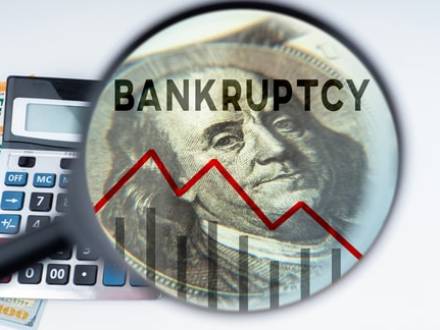 Bankruptcy often carries a stigma, conjuring images of financial ruin and long-lasting consequences. However, the reality is far more nuanced. Facing a substantial debt can make it seem like there is no way out, and bankruptcy can be a powerful tool for financial recovery. A Texas lawyer can help you understand four key reasons bankruptcy might be a more positive option than initially thought.
Bankruptcy often carries a stigma, conjuring images of financial ruin and long-lasting consequences. However, the reality is far more nuanced. Facing a substantial debt can make it seem like there is no way out, and bankruptcy can be a powerful tool for financial recovery. A Texas lawyer can help you understand four key reasons bankruptcy might be a more positive option than initially thought.
Think Of it As a Fresh Financial Beginning
Bankruptcy offers a chance to reset your financial situation. When you file for bankruptcy, many unsecured debts, such as credit card balances and medical bills, can be eliminated. This immediate relief from debt burden allows you to start rebuilding your finances. An automatic stay goes into effect upon filing, providing legal protection that halts most collection efforts, including foreclosures, repossessions, and wage garnishments. This gives you breathing room to address your financial situation without constant pressure from creditors.
Breaking Down the Misconceptions About Bankruptcy
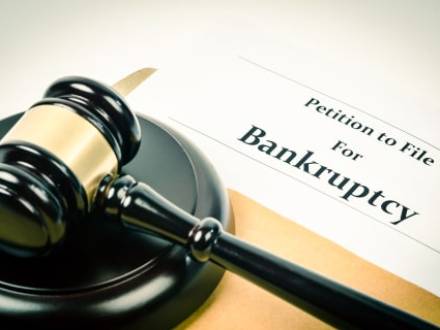 Bankruptcy is a complex legal process that often carries a stigma because of widespread misconceptions. It is important to dispel these myths and provide accurate information to those facing financial hardships. A Texas lawyer can help break down some of the most common misconceptions about bankruptcy and shed light on its realities.
Bankruptcy is a complex legal process that often carries a stigma because of widespread misconceptions. It is important to dispel these myths and provide accurate information to those facing financial hardships. A Texas lawyer can help break down some of the most common misconceptions about bankruptcy and shed light on its realities.
Myth 1: Bankruptcy Means You Have Failed Financially
Many people view bankruptcy as a sign of personal failure or irresponsibility. However, this perception is far from the truth. Bankruptcy is a legal tool designed to provide relief to individuals and businesses facing overwhelming debt. It can be triggered by various factors, often beyond one’s control, such as:
- Medical emergencies and unexpected health costs
- Job loss or significant reduction in income
- Economic downturns affecting businesses
- Divorce or separation leads to financial strain
Responding to a Lawsuit Your Creditor Filed Against You
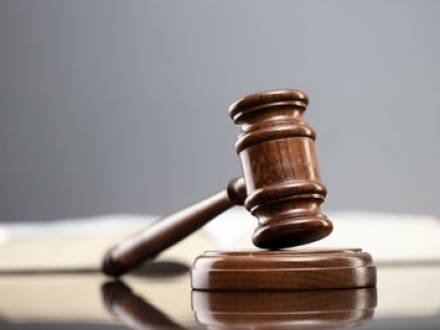 Receiving notice of a lawsuit from your creditor can be devastating, but understanding your options and taking prompt action is vital. A Texas lawyer can help you with the steps you should take if you are served with a lawsuit, helping you through this challenging situation effectively.
Receiving notice of a lawsuit from your creditor can be devastating, but understanding your options and taking prompt action is vital. A Texas lawyer can help you with the steps you should take if you are served with a lawsuit, helping you through this challenging situation effectively.
Make Sure You Understand the Lawsuit
When you receive a lawsuit, you will be served with two key documents:
- Citation: This official court document informs you that you are being sued and provides a deadline for your response.
- Petition: This document outlines the creditor’s claims against you and the amount they are seeking.
Read these documents carefully and note the deadline for your response, typically 20 days from the date you were served in Texas.
Steps to Take When Served with a Lawsuit
Do not ignore the lawsuit. Failing to respond can cause a default judgment against you, allowing the creditor to garnish your wages or seize your assets. Gather all relevant financial documents, including account statements, payment records, and correspondence with the creditor.
How Bankruptcy May Help with Your Tax Debt
 Facing overwhelming tax debt can be a frustrating experience that you feel you may never climb out of. Many individuals and businesses struggle to meet their tax obligations, leading to mounting pressure and financial stress. However, bankruptcy may offer a solution to alleviate this burden. A Texas lawyer can help you understand how bankruptcy can potentially help with tax debt and provide insights into the process.
Facing overwhelming tax debt can be a frustrating experience that you feel you may never climb out of. Many individuals and businesses struggle to meet their tax obligations, leading to mounting pressure and financial stress. However, bankruptcy may offer a solution to alleviate this burden. A Texas lawyer can help you understand how bankruptcy can potentially help with tax debt and provide insights into the process.
Can Bankruptcy Get Rid of Tax Debt?
The short answer is: it depends. While bankruptcy cannot eliminate all types of tax debt, it can provide relief for certain tax obligations under specific circumstances. Here are some factors that determine whether your tax debt may be dischargeable:
- Age of the tax debt: Generally, income tax debt must be at least three years old to be eligible for discharge.
- Timely filing: You must have filed a tax return for the debt in question at least two years before filing for bankruptcy.
Can a Chapter 13 Plan Help You with Past Due Child Support?
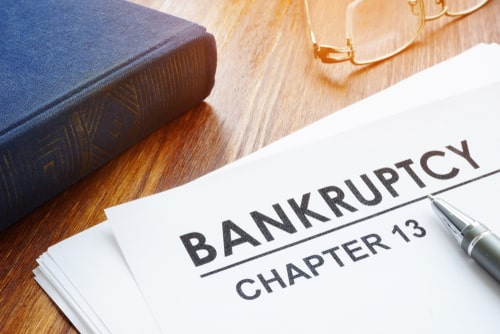 Child support obligations are a serious responsibility, and falling behind can lead to significant legal and financial consequences. If you are having difficulty with overdue child support payments, Chapter 13 bankruptcy may offer a path to regain control of your finances while fulfilling your parental duties. A Texas lawyer can help you determine if this is the best path to take for your circumstances.
Child support obligations are a serious responsibility, and falling behind can lead to significant legal and financial consequences. If you are having difficulty with overdue child support payments, Chapter 13 bankruptcy may offer a path to regain control of your finances while fulfilling your parental duties. A Texas lawyer can help you determine if this is the best path to take for your circumstances.
What Exactly is Chapter 13 Bankruptcy?
There are different types of bankruptcy, and it is helpful to know which may have the potential to help your situation the most. A "wage earner's plan," commonly known as Chapter 13 bankruptcy, enables individuals with consistent income to establish a three to five-year plan for repaying their debts. Unlike Chapter 7 bankruptcy, which involves liquidating assets, Chapter 13 enables debtors to keep their property while making manageable payments.
New Creditor Judgments After Starting Bankruptcy
 Filing for bankruptcy is often a challenging decision, but it can provide a fresh financial start. However, what happens when a creditor obtains a new judgment against you after you have initiated the bankruptcy process? This situation can be confusing and stressful, but understanding your rights with a Texas lawyer can help you through this difficult time.
Filing for bankruptcy is often a challenging decision, but it can provide a fresh financial start. However, what happens when a creditor obtains a new judgment against you after you have initiated the bankruptcy process? This situation can be confusing and stressful, but understanding your rights with a Texas lawyer can help you through this difficult time.
Legal Actions You Can Take When a Creditor Obtains a Judgment Against You
When a creditor obtains a judgment against you following your filing for bankruptcy, you have several legal options at your disposal.
- Notify the Court: Immediately inform the bankruptcy court about the new judgment. This step is crucial as it allows the court to take appropriate action.
- File a Motion to Enforce the Automatic Stay: The automatic stay is a powerful tool in bankruptcy that halts most collection activities. Filing a motion to enforce this stay can stop the creditor from pursuing the judgment.
When Should You Consider a Short Sale If You Are in Financial Trouble?
 Financial hardships can strike unexpectedly, leaving homeowners struggling to keep up with their mortgage payments. When faced with foreclosure, many homeowners consider alternative options, such as short sales. While short sales can be a viable solution for some homeowners, it is important to understand when this option is most appropriate. A Texas lawyer can help you determine if this is the best route for you.
Financial hardships can strike unexpectedly, leaving homeowners struggling to keep up with their mortgage payments. When faced with foreclosure, many homeowners consider alternative options, such as short sales. While short sales can be a viable solution for some homeowners, it is important to understand when this option is most appropriate. A Texas lawyer can help you determine if this is the best route for you.
What are Short Sales?
When homeowners sell their property for less than their mortgage balance, it is called a short sale, and the lender accepts the proceeds as full payment. In a short sale, the lender essentially forgives the remaining debt, allowing the homeowner to avoid foreclosure and its negative consequences. Remember that in certain cases, a lender may require you to pay the remaining balance after a short sale, which is typically the difference between the sale price and the initial loan amount.
How Bankruptcy Can Halt Repossession
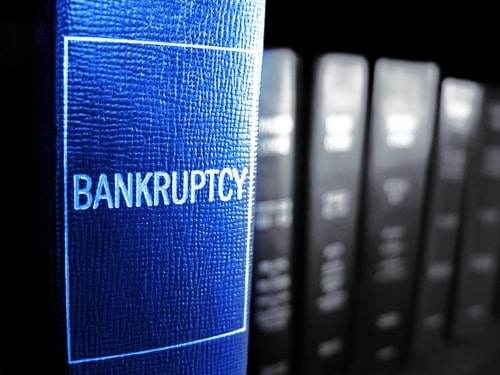 Are you facing the threat of repossession in Texas? If so, you are not alone. Many individuals struggle with financial challenges that can lead to repossessing their vehicles or other assets. Fortunately, bankruptcy filing can be a powerful tool to halt repossession and protect your property. A Texas lawyer can help you understand how bankruptcy works and what you need to know to take advantage of this legal option.
Are you facing the threat of repossession in Texas? If so, you are not alone. Many individuals struggle with financial challenges that can lead to repossessing their vehicles or other assets. Fortunately, bankruptcy filing can be a powerful tool to halt repossession and protect your property. A Texas lawyer can help you understand how bankruptcy works and what you need to know to take advantage of this legal option.
What to Know About Repossession in Texas
When you finance a vehicle or other asset, the lender typically has the right to repossess the property if you fall behind on payments. In Texas, lenders can repossess your vehicle without a court order if they do not breach the peace in the process. If you default on your auto loan, your car could be taken away quickly and without warning.
How Bankruptcy Can Help
Filing for bankruptcy can stop repossession in its tracks. Filing for bankruptcy immediately triggers an automatic stay, preventing creditors from pursuing any collection activities against you. This includes repossession, foreclosure, wage garnishment, and more. The automatic stay allows you to explore your options and develop a plan to get back on track financially.






